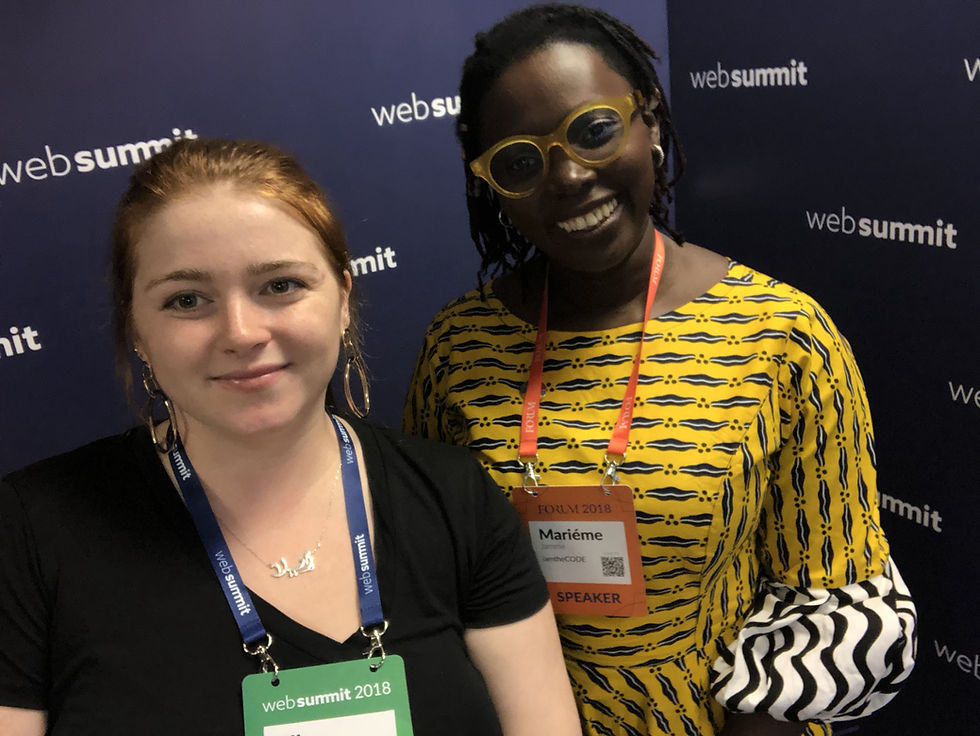#InterviewSeries | Wendy Goucher
- Ella Botting
- Nov 13, 2017
- 4 min read
One thing I was really hoping to shine light on with this blog and specifically the Interview Series, was the interaction technology/ digital can have with seemingly non-techy subjects, and how fascinating, empowering and enlightening this interaction can be. And thats where Wendy Gouchercomes in! Wendy has a background in psychology and economics, and is now an information security consultant. Wendy began researching the human contribution to business security over ten years ago and now researches at the University of Glasgow, specifically looking at the leakage of information by non-technical means when people are working in public places. Fascinating and important work!

"My first career was as a lecturer in colleges and university in management, economics, psychology of business amongst other things.I moved across to information security in 2009 because I felt that the profession needed someone who had a non-tech perspective, not least to keep the techs ‘honest’ in that they have to be clear in their explanations and understanding of operational requirements of staff who would not regard themselves as technical.
Because of my background and training in teaching I have been able to be involved in a number of very interesting projects including writing material for the curriculum for security awareness for children aged 6 to 18 years old for Qatar. I have also been involved in writing articles and books within the information security area for most of the time I have been part of the profession. Last year I had my first ‘solo’ book published; Information Security Auditor’ for the BCS. I am currently co-authoring a book on Incident management for CIOs For Taylor Francis which should be published early next year. My recent consulting work has looked at Data Protection and GDPR and designing training programs for organisations. I am also awaiting the result of my MSc by Research in Computer Science, which focuses on recognizing and protecting against invisible information security threats.This research has been conducted at the University of Glasgow."
Tell us a little bit about your journey into a technology-based role.
I think I answered most of that above, but principally I use my skill at communicating sometimes quite difficult ideas (which is really the definition of a teacher or lecturer, if you think about it) to bridge the gap between the technical and no-technical areas of business.
How do you personally use technology in your day to day?
Technology is core to both work and family life. I have a standard desktop computer, an iPad Pro, Kindle and iPhone. Our children have both left home now, but there is regular contact by text and email, as well as by phone. We have some IoT technology around the home, sometimes because it is the best way to do something, sometimes because we want to understand the technology, from and technical and user perspective.
How do you use technology in your job role?
For all types of communication, for any kind of travel and as something I need to understand.
What have been the best learning resources for you?
I learn best where I can use something myself, or share ideas. In that way I think I would say that people and the internet are my best resources.
As a woman, do you think you have faced any challenges that a man would not face in your position?
It is hard to say. It may be that because I am not a ‘hard tech’, and because I focus on communicating in a helpful way, my output can sometimes appear to be ‘common sense’ rather than hard. This is a skill that I think is more common to women. The insight you can get from moving in different environments and observing and listening, is less common amongst men I find.
What HAS been your biggest challenge so far?
I am challenged by trying to go against my experience and training, and try to make things sound harder. I am also a natural collaborator, which is not as forceful as business often expects.
With regards to technology, what do you think will be our biggest barrier to success in the future?
We need to bring the understanding of safety and security alongside the ease of use. Too many people, especially those who are not in an office situation, don’t feel that information security is something they can understand, and it threatens them. They hear about ‘Cyber ‘ attacks and it sounds like something they cannot defend against. In the various working groups I am involved in, I push to promote meaningful security to all users, from the senior surfer to the young child.
Who makes up your support squad?
My colleague is very smart and technical so he is one who I can discuss ideas with. I have also been fortunate to have a number of friends in the IS community, and I enjoy discussing ideas with them.
What’s your favorite piece of advice to offer entrepreneurial/techy women?
Understand your value and contribution. By that I mean know what it is that makes you different, why you are good at your job. Also understand those situations that are de-motivating or make you stressed. Why is that and what do you need to change. Women are adding value all through business, and they can do so in our area too, but they need to understand and develop themselves.
Thank you so much Wendy for your amazing, honest and practical insights!
♥



Comments